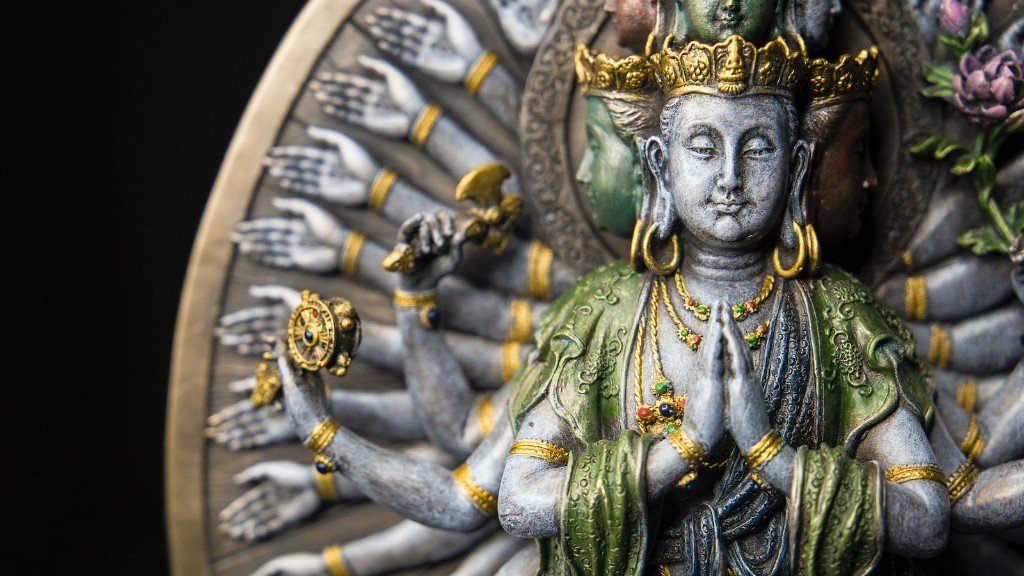Mormonism, officially known as The Church of Jesus Christ of Latter-day Saints (LDS), is a Christian denomination that is based on the teachings of Jesus Christ, who founded the religion in 19th-century America. LDS is the fourth-largest Christian denomination in the United States and is recognized worldwide. The religion and its teachings have sparked a great deal of debate over whether Mormonism can be considered a genuine form of Christianity or not.
According to LDS traditions, Joseph Smith Jr. discovered golden plates in the early 19th century which he translated into a book known as the Book of Mormon. The book is said to be an ancient record of God’s dealings with the Americas, as well as a record of Jesus Christ’s visit to the Americas. LDS practitioners accept the Book of Mormon as holy scripture, and many members consider it to be a part of the “standard works” of scripture, which includes the Bible.
Mormons believe that Jesus is the Son of God, and that He died for the sins of the world. They also believe in the resurrection of Christ and the eventual coming of the Kingdom of Heaven on earth. LDS adherents practice the same basic Christian principles such as love for neighbor, baptism for the remission of sins, and the laying on of hands for the gifts of the Holy Ghost. LDS members frequently attend worship services such as Sunday School and sacrament meetings, and they celebrate various Christian holidays as well as holidays specific to their faith such as “Pioneer Day” in early July.
Mormonism, however, differs from other Christian denominations in several significant ways. One example is its belief in an afterlife that is divided into three distinct degrees—telestial, terrestrial, and celestial—where the degree of glory and reward is dependent upon an individual’s righteousness. Mormons also allow for the practice of polygamy in some extreme circumstances and follow the practice of latae sententiae excommunication for major transgressions such as adultery and blasphemy. Another point of difference is their belief in modern revelation and prophecy, which includes the acceptance of additional books of scripture such as the Book of Abraham and the Doctrine and Covenants, as well as the ongoing leadership of living prophets.
Although LDS does depart from traditional Christian beliefs in some areas, many Christian theologians argue that Mormonism is, in fact, a form of Christianity. Robert Millet and S. Kent Brown of Brigham Young University maintain that Mormons are Christians in the fullest sense because they “share a traditional belief in the Triune God (Father, Son and Holy Ghost), in Jesus Christ as Savior, in the need for faith, repentance, and baptism, and in the ultimate triumph of good over evil, of truth over error, of life over death.”
Mormon theology also offers a unique interpretation of traditional Christian doctrines, finding meaning and truth in them that is often overlooked by mainline Christianity. For example, LDS followers believe that a literal interpretation of the Garden of Eden indicates not just a physical paradise, but also a paradigmatic relationship with God, while they understand the resurrection of Christ as a literal physical event that all mankind will ultimately experience.
Scripture
LDS beliefs are largely based on the scriptures, which include the Bible and the Book of Mormon. The Book of Mormon is viewed as containing the fullness of the gospel of Jesus Christ, while the Bible is regarded as a chronicle of God’s dealings with the ancient Israelites. Together, these scriptures are seen as forming the basis for the restoration of the gospel in the 19th century. Also important to LDS members is the ongoing practice of seeking personal revelation from the Holy Spirit through prayer, study, and meditation.
Culture and Practices
Mormons observe a number of cultural differences from other Christian denominations. LDS members refrain from drinking alcohol, coffee and tea, and they maintain a dress code that is considered modest. The Church also has an intensive missionary program in which members are encouraged to share their faith with others. The Church also has a lay ministry in which members around the world perform various responsibilities such as teaching Sunday School and administering sacrament. Additionally, the LDS Church operates an extensive welfare system to care for the poor and disadvantaged.
Relationship with Other Christian Denominations
Despite the theological disagreements between LDS and other Christian denominations, LDS members are often seen as partners in many areas of Christian outreach such as fighting poverty, providing aid to victims of natural disasters, and working to promote peace and understanding among all people. In recent years, LDS members have worked alongside other Christian denominations in various projects such as Habitat for Humanity, helping the homeless, and aiding refugees. LDS members have also been praised for their involvement in volunteer activities and charitable causes.
Influence on Modern Culture
The influence of the LDS Church on modern culture is undeniable. The Church has had a large impact on popular music, television, and film, with the band the Osmonds, the musicals Saturday’s Warrior and the Book of Mormon, and the hit show Big Love all having been created by LDS members. The Church’s humanitarian efforts around the world, particularly in the field of disaster relief, are also well-known. Additionally, its emphasis on education, family values, and self-reliance have been embraced by members of other denominations, as well as non-Christians.
Concept of Salvation
Mormonism differs from other Christian denominations in its concept of salvation. While other Christian denominations generally believe that salvation is an act of grace, Mormons believe that salvation is an ongoing work which is accomplished through faith, repentance, and obedience to God’s commandments. Mormonism teaches that salvation is a lifelong process and that individuals are required to continually learn, grow, and strive to live according to the commandments of God in order to obtain full salvation. This process is known as exaltation, and it is believed by LDS followers to be the highest form of bliss, joy, and happiness available to man.
Doctrine of Baptism
Mormons practice baptism for the remission of sins, a doctrine that differs from the traditional Christian view of baptism as a single act of faith. LDS members believe that baptism is an essential part of the process of repentance and that it must be preceded by faith, repentance, and personal improvement. The Church also maintains a doctrine of baptism for the dead, which is a ritual performed in LDS temples whereby living individuals are baptized in proxy for deceased individuals.
Conclusion
There is much debate regarding whether Mormonism can be considered a denomination of Christianity. While some Christian theologians argue that Mormonism is a genuine form of Christianity, others point to points of departure in certain LDS beliefs which make it distinct from other Christian denominations. Whether or not one considers Mormonism a Christian denomination, there is no doubt that Mormon beliefs, values, and practices have had a significant and lasting impact on modern culture and society.

